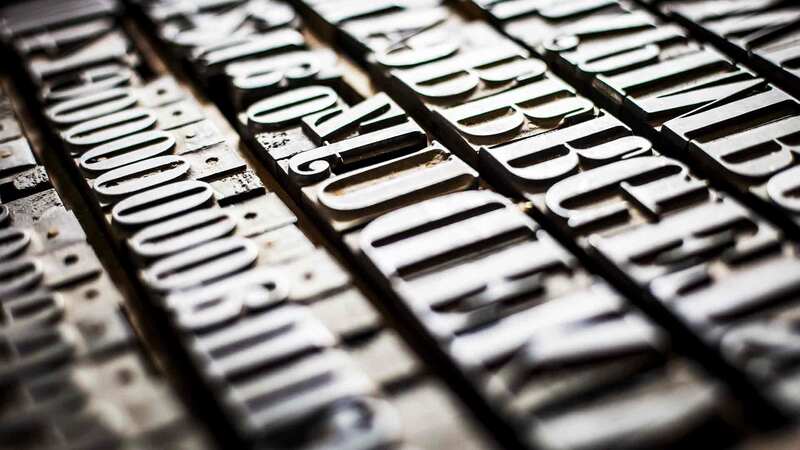You are viewing your 1 free article this month. Login to read more articles.
Brexit-struck indies forced to consider raising prices
Independent publishers say they are "extremely vulnerable" to the uncertainty caused by Brexit, with currency fluctuations putting pressure on tight margins and forcing many to consider raising the prices of their books.
The decreased value of pound, which is currently trading at around 10% below its pre-referendum value according to the FT, has caused money to be lost in foreign exchange. Daniela Petracco, UK director of Europa Editions, said the company's margins are being “slashed” by the floundering exchange rate, and while the publisher is currently absorbing the difference in cost, it may have to raise print prices in future.
Of a title due to be published in September, which is priced at $18 in the US, Petracco said a straight conversion would mean that the book should cost £13.99, which is getting into “hardback territory”. The publisher will be selling it at £11.99.
Adele Wearing at Fox Spirit Press, said that as a "very small press" it is already a “constant feat attempting to put out top quality product on a shoestring". She said: "Publishing is going through a time of tightening belts and smaller advances even in the major publishing houses, small presses don't have any more fat to cut and are extremely vulnerable to sudden changes in costs or legal burdens as of course are our authors who work on profit share.”
She added that the "obvious lifeline" for small presses has been print on demand which allows them to offer physical books to genre fans. However, this has been hit by currency fluctuations.
Wearing said: "Unfortunately, the Thursday (23rd June) of the referendum I took payment for stock for one of my authors for an event and placed the order via Amazon CreateSpace. The order processed through my credit card overnight, so I woke up on Friday (24th June) to discover the pound had dropped substantially and the books had cost me a fair amount more than before. It has since stabilised a little, but we had a stressful few days determining when to order our own stock for Edge.Lit5 in Derby."
She added that Fox Spirit has not yet raised its prices but that it is "under consideration”.
Eloise Millar, co-director of Galley Beggar Press, told the Bookseller that the most recent quote she received from a UK based printer, for £2.60 a unit for a long print run, “near-on gave [her] heart failure”.
“It's normally - and for our black-covers, which are very pricey (premium paper, flaps etc) - around £1.60-£1.80. The printer has justified themselves by pointing to the extent (it's 412pp), but we've had 600 page books go through with them for far less than that, and with better paper. We've actually just had a very nice experience with Clays, which slightly changes the price nightmare for us. When they first came through on our new publication last week, it was with a catastrophically high quote! They've now come back with a lower quote, which is much more in line with what we are used to seeing."
Millar added that this deal with Clays has "saved" the press from having to increase prices "for now", but said: "at some point that is probably going to be on the cards, especially when you factor in the chain bookseller's aggressive discounting and the frequently catastrophic level of returns…"
Jared Shurin of Jurrasic London told The Bookseller: “Our costs just went up roughly 50% with the destroyed pound, yet our income remains the same. My next book just went from ‘under budget’ to ‘a guaranteed loss’. Either I increase my prices 50% and not sell any… or take the hit and stagger on.”
Shurin said the problems with printers so far has been two-fold, with UK printers that buy materials from Europe - German cover stock, for example - and overseas printers becoming "much more expensive" with the decreased value of the pound.
He added that these price issues are "a few immediate areas of pain" but "in the long term, we’re going to suffer from the lack of arts funding and grant money and partnership opportunities. Plus a brutalized economy that means consumers are less likely to buy books at all – much less gamble their extra income on experimental or small press titles.”
George Sandison of Red Squirell Press said: “We do a lot of printing in the EU, often around the autumn so whatever happens we’ll already have to deal with the changes in currency valuation. Any price increase would be on top of that so it will all add up in terms of unit cost.”
Sandison also spoke of the longer term impact the issue would have on indies. He said: “My bigger concern is for our fiction imprint where print runs are typically a lot smaller – we publish debut writers in genre fiction (science fiction and fantasy) – and any increases will have a proportionally greater effect. Which is a real shame when you think about it, because launching new writers is such an important part of the fiction market.”
In spite of the uncertainty and difficulties caused by price fluctuations many independent publishers have spoken about the “silver lining” of the referendum vote, which has resulted in the promotion and support of European culture and literature.
Many indies including Pushkin, Deadlus, Influx and And Other Stories are showing their support for Europe by engaging in campaigns and promotions to showcase European literature.
Petracco added: “I am already seeing signs of valiant mutual support throughout the industry, and we are all determined to renew and redouble our efforts to spread international culture in the face of the referendum results. It’s even more important now.”



















